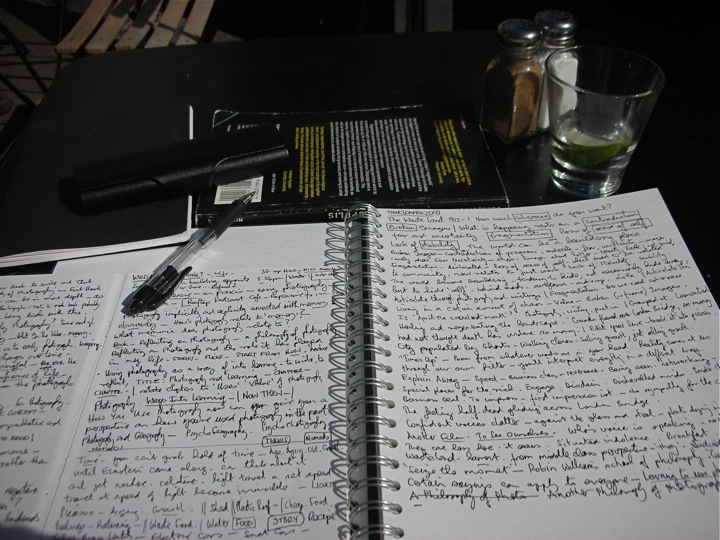I've talked about repetition; the 75 times you need to really acquire new language (
see previous post). Well holidays are a perfect way to use some of your English again and again and again.
If you are studying in an English speaking country, this might be especially useful for you. Think about the questions you are asked when you return from holiday or just a long weekend. They are always the same:
“Where did you go? What did you see? What did you do? Did you enjoy it? Who did you go with? What was your favourite place? Oh, I’ve been there, did you visit ______? What did you think of ______?”
What a wonderful opportunity for your English! You know what questions to expect and you can learn, prepare and rehearse your answers.
Let's look at a few phrases you can use for each of these questions. Remember, vocabulary is good but learning and acquiring complete phrases helps with fluency. To make this post prettier, I've also included some photos of a recent holiday I had on the border of Argentina and Brazil. Enjoy
1. Where did you go?
I spent a few days in… (you stayed in one place)
I spent a few days travelling around… (you stayed in one general area but visited a few specific places in that area)
I went/travelled up to… (if the destination was north)
I went/travelled down to… (if the destination was south)
I went/travelled over to… (if east or west)
I went with some friends up to…
2. What did you see?
Well, where to begin? (a rhetorical question for yourself, which gives you more time to think and explains you have a long story to tell)
I saw lots of stuff actually. I saw… (then give a list)
 |
| The waterfalls at Iguazu on the Brazilian side. |
3. What did you do?
What did I not do? (a great reply that explains you did a lot of things – make sure you really emphasise the ‘not’ and say it with a smile on your face)
I did a bit of… (climbing, shopping, sunbathing, kayaking, hiking, waterskiing, reading… the list goes on and on and on)
I actually did a lot more than I expected. I… (then give details – this is if you did more than was in your original plan)
Not as much as I’d wanted. I… (then give details – if you did less than was in your original plan.
4. Did you enjoy it?
Definitely! It was exactly what I wanted. (it was a perfect vacation and it is what you excepted)
Definitely! It was exactly what I needed. (it was perfect and helped you to relax)
Immensely! (100% brilliant!)
Very much so, yes! (90-100%)
Hmm, not that much because… (30-40%)
Yeah, more or less, but I think _______ could have been better. (your vacation was 50/60% and there are one or two things you didn’t like – for pronunciation help with this, take a look at
this previous post)
5. Who did you go with?
I just went by myself (no travelling companions; alone)
I went with…
I was going to go by myself but I ended up going with _________. (the original plan was to go alone but this plan changed and you went with another person)
6. What was your favourite place?
Well, I particularly liked… (you want to talk about a specific thing that you liked on holiday)
________, without a doubt. (a tag at the end of the answer to explain that one place was much better than all the other places)
That’s a difficult question. I guess I’d have to say… (if you are not sure about your answer or there was more than one really good place)
I probably enjoyed ______ more than anything else. (this is not as strong as ‘without a doubt’ and shows that there were a few things that you really enjoyed)
 |
| Breathtaking and spectacular, isn't it? |
 7. Oh, I've been there. Did you visit _____?
7. Oh, I've been there. Did you visit _____?
Yeah, what did you think of it?
Of course! (an obvious place to visit that would be impossible to miss)
No, we didn’t have time to go there.
No, we didn’t have the opportunity to go there.
No, I really wanted to but…
8. What did you think of_____?
I thought it was spectacular. (amazing)
I thought it was breathtaking. (very impressive)
To be honest, I wasn’t very impressed with _______ because... (under 50%)
It was alright but not as good as everyone was saying. (50-60% but people told you that it was 100% amazing)
It would have been great but it was spoiled by… (a good place/event was much less fun because of something that happened – bad weather, for example)














